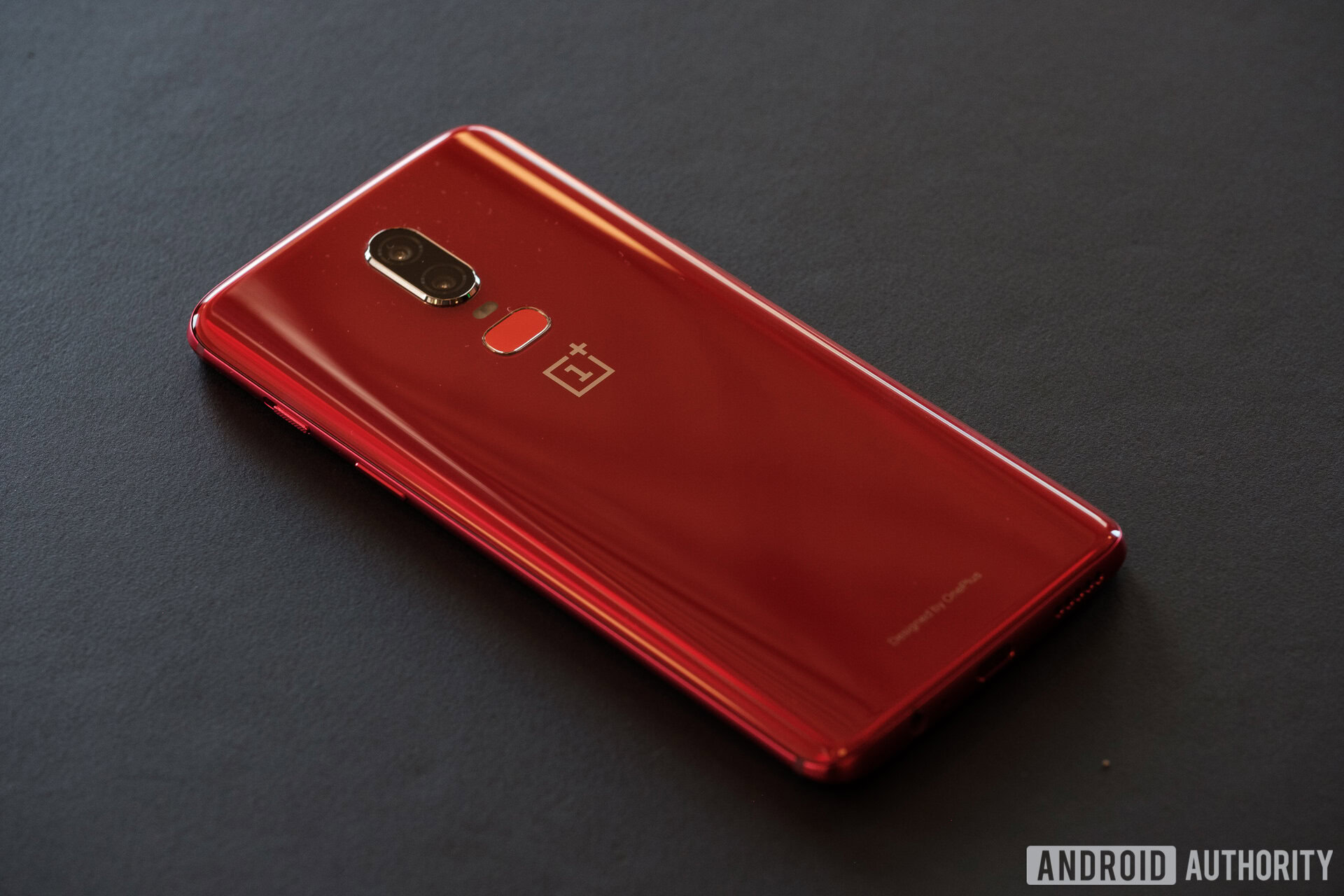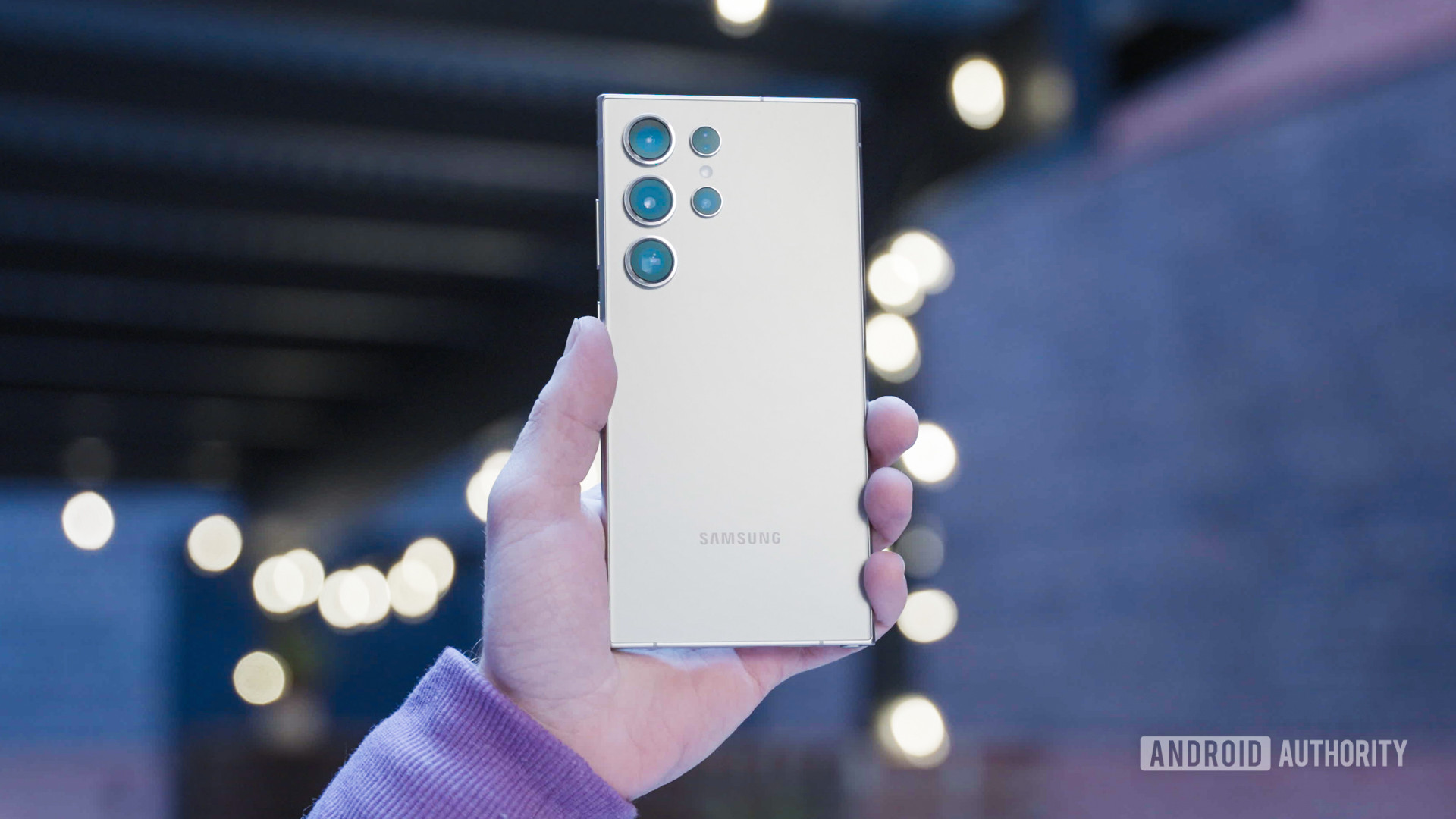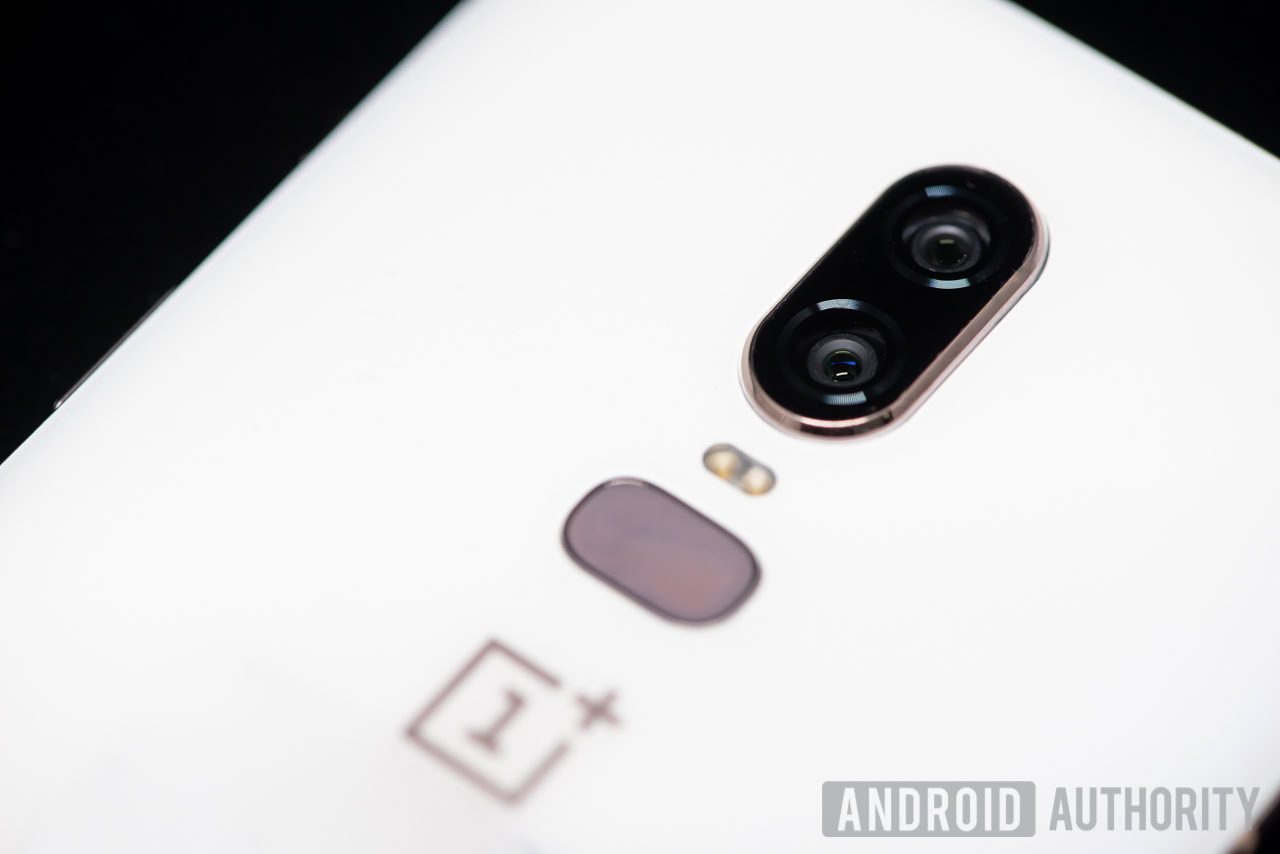Affiliate links on Android Authority may earn us a commission. Learn more.
OnePlus 6 camera review
Published onJuly 31, 2018

In our OnePlus 6 review we described the phone as a possible spiritual successor to the Nexus lineup, because it brings forth a premium experience at a hard-to-beat price. Nexus, and eventually Pixel devices evolved in features, specs, prices, and especially camera quality. Has the OnePlus 6 done the same?
OnePlus cameras aren’t typically considered outstanding. These shooters have never been up to par with the best in the industry, and the OnePlus 6 camera no exception. It’s good at being average. You can’t ask for top-tier performance from a phone starting at $529, especially considering how few design compromises it features.
The OnePlus 6 packs improved camera components, but are they enough to satisfy your photo needs? I took the OnePlus 6 for a couple days of camera fun around San Diego. Let’s go over how it fared.
OnePlus 6 camera specs
Rear cameras:
- 16MP Sony IMX 519 sensor with 1.22μm pixels
- ƒ/1.7 aperture
- OIS/EIS
- 20MP secondary Sony IMX 376K sensor with 1.0μm pixels
- Dual LED flash
- 4K at 30 or 60fps, 1080p at 30 or 60fps, 720p at 30fps, Super Slow Motion video at 1080p
- Shooting modes: Video, Photo, Portrait, Slow motion, Pro Mode, Time-lapse, Panorama, Shutter lag, HDR, 2X zoom
Front camera:
- 16MP Sony IMX 371 sensor with 1.0μm pixels
- ƒ/2.0 aperture
- EIS
- 1080p at 30fps, 720p at 30fps
OnePlus 6 camera app
OxygenOS is very much like the stock Android experience found in Pixel devices, and so does the camera app. It looks nearly identical to Google’s app. You are welcomed by a clean viewfinder with three buttons at the bottom: shutter, picture preview, and camera rotation.
The camera app also has a Pro Mode, which many camera buffs will enjoy. In Pro Mode you can control white balance, ISO, shutter speed, exposure, and more. You can move from left to right to switch between video, photo, and portrait mode. There are additional settings along the top, as well as within the preview. Pull up from the bottom (or side, if you are shooting in landscape mode) and you will also find a slew of shooting modes.
There is not much to complain about. The app doesn’t have a ton of bells and whistles, staying true to its plan to keep its software as simple as possible. That doesn’t mean it lacks features, though.
- Ease of use: 10/10
- Intuitiveness: 9/10
- Features: 9/10
- Advanced Settings: 7/10
Score: 8.8/10
Also read: Smartphone photography tips: 16 handy tricks you should know
Daylight
It’s hard to mess up photos taken in broad daylight. The OnePlus 6 did a good job exposing the shot, grabbing detail from the sculptures, capturing texture, and displaying vibrant colors. The sky is bright blue in both instances, and we can see a good amount of detail in the clouds, which is always a feat.
We wish the OnePlus 6 offered better dynamic range. Automatic HDR was turned on for all photos, and in multiple instances detail is pretty much absent in strong shade. Most phones have a hard time with this one, though. Overall, we believe the OnePlus 6 did an exceptional job, just like most good phones in healthy lighting.
Score: 9/10
Color
Here is more proof the OnePlus 6 hardware and software are not bad at handling exposure and colors in direct sunlight. In the first couple images we see well-exposed frames, vibrant hues, and overall striking images. However, the camera didn’t handle shade too well here, though it could also be the result of excessive post-processing.
The OnePlus 6 camera produced some pretty photos here, but they looked a bit over processed. The colors are a bit too saturated, and the shades look dark as a result of too much contrast. This makes for a very enticing image with less detail. To say the least, these photos don’t exactly look “true to life.”
Take the camera indoors and things start to change, though. While colors on the third and fourth photos are good, they lack the vibrant hues we saw in direct sunlight. Furthermore, there is a bit of a hazy effect.
Score: 8/10
Detail
Most good camera phones can take an image that looks amazing from afar. Start zooming in and all the problems show up. Such is the case with the OnePlus 6 shooter. It captured the texture of the sand well, but zooming in revealed a loss in detail and signs of over-softening.
The same applies to the second image, in which the clearer hair pretty much becomes a white blotch. We can only see good detail in the hair around the eye, where the focus point was. The rest of my guinea pig’s body is blurred out.
The last two shots follow the same pattern, good detail from afar, but closing in doesn’t quite help.
Score: 6/10
Landscape
The whole idea of taking a landscape photo is being able to capture a scene with multiple layers and a plethora of elements. The camera needs to do a good job evenly exposing the photo, which can be a bit hard when a strong light source like the sun is in the frame, like the photo to the left.
Given the circumstances, the OnePlus 6 did a pretty good job getting details from the sky and the faraway cliffs in the first image. The rocks in the front are a bit underexposed, but that is to be expected unless you have some heavy-duty HDR. Most phones can’t handle an HDR shot with high contrasting exposure levels (such as this one) very well. Given the circumstances, this is not a horrible shot.
The phone handled the other photos much better. The images are evenly exposed, and we can find pretty good detail even in the shade.
Score: 8/10
Portrait Mode
Something in the OnePlus 6’s Portrait Mode processing gives images washed out hues, funny color palates, and a heavy amount of softening. We are not the biggest fans of this effect, but these soft backgrounds aren’t horrible.
The OnePlus 6, much most other phones’ Portrait Modes, produces these pictures by determining the distance between objects in a frame using multiple lenses. This is a good technique, but it is not foolproof. Many phones struggle deciding where the draw the line to keep certain objects focused and others blurred out. Zoom in right under the female model’s armpit and you will see part of the background is in focus, when it shouldn’t be, though this is a small mistake, and hardly noticeable.
I must say the OnePlus 6 actually did a good job here. Nothing looked off enough to really catch my attention unless I really looked hard. It even did a good job outlining my hair, which is something only a couple phones have been able to do well. I was going to give this category a score of 6, but the outstanding job outlining subjects gives the OnePlus 6 an extra point.
Score: 7/10
HDR
Previously shown photos have proven the OnePlus 6 is not the best at handling dynamic range. For these images I forced HDR on and the results were pretty disappointing.
High dynamic range evenly exposes a frame with multiple levels of light. Traditionally it’s done by mixing multiple photos taken at different exposure levels. The end result was an image with reduced highlights, increased shadows, and an even exposure.
To see HDR performance we have to look closer at the shaded areas of the frame, as well as the more lit ones. It should bring them closer together to make a more evenly exposed shot. In the first image we can see the food truck to the right is too dark, as is the area under the arches, in the back.
The second shot was taken from inside the garage, looking out, where there is direct sunlight. As you can see, HDR performed so poorly part of the ground outside is blown out. The shaded areas in front of the car are also pretty harsh.
Difference in light in the third shot was quite extreme. The sun was blowing in from a window, only iluminating part of the table and the items over it. The OnePlus 6 actually did a very good job with this one, but it is the only shot that kept us satisfied.
Score: 5/10
Food
Instagram foodies will be sad in this section. The OnePlus 6 could have definitely done better at shooting these tasty bites. The picture of the In-N-Out burgers is a disaster; the white balance is off, detail is scarce, and the colors are a bit too saturated. The environment and lighting didn’t help much, though, so I decided to give it another shot somewhere else.
I went to Extraordinary Desserts in downtown San Diego, where lighting is leveled and the food was right under downward-pointing bulbs. The OnePlus 6 did a much better job here. You can see detail in the tart’s texture, as well as the burnt cream. The chocolate cupcake doesn’t fall behind, either.
The best shot is probably the one featuring tacos, but the phone didn’t have to work too hard for this one. We were sitting outdoors, where sunlight was plentiful.
Score: 7/10
Lowlight
A camera phone’s real capabilities are most apparent in low light. Though the OnePlus 6 wasn’t perfect, it handled itself alright.

The picture of San Diego’s skyline has good detail in the buildings — it is better exposed than in real life, to be honest. Everything looked darker in person. We can see some noise, but that’s expected. Personally, I prefer noise to over softening. Detail in the water and clouds is lost, but this is still a very good-looking shot.
In the right we can see “Nude” by Christian Rohlfs, a painting in the San Diego Museum of Art. I liked it as a test shot mostly because the brushstrokes were very pronounced, and the lighting around the frame was scarce. I like how much of the painting’s detail the OnePlus 6 managed to grab, but that’s about all it did well. The shadows under the frame are way too harsh, and in the left side there should be a wall corner — it’s only visible if you stare at the picture for a long time, and very closely.
The last two photos were shot in a park, with artificial yellow light, which is obviously apparent. The camera had a hard time finding white balance in these shots, not to mention loss of detail in the flowers, as well as under shades.
Score: 7.5/10
Selfie
Selfies with the OnePlus 6 are passable, but nothing extraordinary. They are well exposed and color reproduction is accurate, which is already a win in terms of front-facing camera standards. There is some artificial softening going on here, as well as problems properly exposing the desserts. However, it’s a selfie camera — a drop in quality is to be expected.
Score: 8/10
Video
A combination of OIS and EIS makes fore a rather smooth video. Sure, you can see the swings from side to side when recording while walking, but similar tests on other phones look very jittery. It is not up there with the best of them either, though.
Colors are vibrant and blacks are deep, but not over the top. Things also look pretty crisp. OnePlus managed to capture a look that seems closer to real life than other over-processed samples from competitors. We can’t find much to complain about, but we also don’t see anything to write home about. It is a pretty average video shooter.
Score: 7/10
Conclusion

Overall score: 7.4
The OnePlus 6 is not the phone to buy for its camera. Its hardware is average, and the software could use some improvements. However, the OnePlus 6 can perform in almost all other categories, especially considering its price. This is a high-end device with value, and the manufacturer definitely cut some corners to make it so. Sadly, one of the areas where OnePlus cut costs was the camera (though a 7.6 rating is not too bad).
This camera will take a nice shot, and if you are a photo buff you will certainly enjoy Pro Mode. Just don’t expect it to compete against the big boys in the block — and try not to crop.
Next: OnePlus 6 vs Galaxy S9 Plus vs Pixel 2 XL vs iPhone X camera shootout